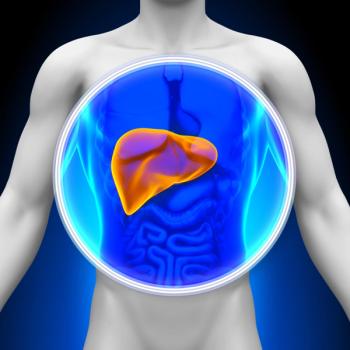
Investigators aim to identify a clinically useful and safe dose of Illuminare-1 for future studies in surgical cancer care.

Your AI-Trained Oncology Knowledge Connection!


Russ Conroy is an Associate Editor for CancerNetwork. He grew up in Hillsborough, New Jersey, and graduated from Rutgers University-New Brunswick in 2022.
On the weekends, he likes to unwind by playing video games with friends, tailgating at Rutgers football games with his family, or building his music collection with a visit to Princeton Record Exchange.

Investigators aim to identify a clinically useful and safe dose of Illuminare-1 for future studies in surgical cancer care.

Higher response rates with T-DXd occurred in patients with gastric cancer and plasma HER2 amplification in circulating tumor DNA in the DESTINY-Gatric01 trial.

Data from the ALLELE trial support the application for tabelecleucel in patients with EBV-positive post-transplant lymphoproliferative disease.

Data from the INAVO120 trial support the breakthrough therapy designation for inavolisib in PIK3CA-mutated, HR-positive, HER2-negative breast cancer.

Developers voluntarily request withdrawal of accelerated approval status for infigratinib as a treatment for FGFR2-positive cholangiocarcinoma.

The agency issues a complete response letter for the combination due to deficiencies associated with a manufacturing site inspection.

A reduced dosing duration of venetoclax plus hypomethylating agents may be appropriate for elderly patients with acute myeloid leukemia.

Data from the phase 1/2 ALKOVE-1 trial support the breakthrough therapy designation for NVL-655 in advanced ALK-positive non–small cell lung cancer.

Safety data further support datopotamab deruxtecan as a new treatment option in metastatic hormone receptor–positive, HER2-negative breast cancer.

Data from the TRANSCEND-FL trial support the accelerated approval of lisocabtagene maraleucel in relapsed/refractory follicular lymphoma.

Alternative treatment strategies may be necessary for a high-risk population of patients with acute myeloid leukemia and residual FLT3-ITD.

Data from a phase 1/2 trial support the FDA breakthrough therapy designation for petosemtamab in recurrent head and neck squamous cell carcinoma.

Approval of the self-collection solution may reduce barriers to sample collection and increase access to cervical cancer screening.

Patients with cancer who underwent surgery during the COVID-19 pandemic were also more likely to have respiratory complications.

The phase 3 KeyVibe-010 trial is unlikely to meet its primary end point of recurrence-free survival due to a high rate of treatment discontinuation.

The progression-free survival end point was not met in the CheckMate -73L trial assessing patients with unresectable stage III non–small cell lung cancer.

Phase 2 data support additional investigation of lifileucel as a treatment for patients with metastatic non–small cell lung cancer.

Treatment with SNB-101 previously demonstrated tolerability among patients with solid tumors in a phase 1 trial.

Phase 2 data support the use of fuzuloparib with or without apatinib in HER2-negative metastatic breast cancer harboring BRCA1/2 germline mutations.

Developers will work with investigators of the phase 3 KEYNOTE-B21 trial to share their findings with the scientific community.

Phase 2 data also highlight an improvement in disease control rate with setanaxib/pembrolizumab in squamous cell carcinoma of the head and neck.

Data from the phase 3 CRC-PREVENT trial support the sensitivity of ColoSense in the detection of colorectal cancer.

Data from the phase 1/2 eNRGy trial support the biologics license application for zenocutuzumab in NRG1-positive NSCLC and PDAC.

Findings suggest that patients with breast cancer and consistently negative circulating tumor DNA tests tend to have improved clinical outcomes.

Data from the CheckMate-67T trial support the biologics license application for subcutaneous nivolumab in multiple solid tumors.

Functional consequences appeared to be lower with HIFU compared with radical prostatectomy in a prospective trial.

Data also highlight a favorable overall survival trend with the acalabrutinib regimen in the phase 3 ECHO trial.

Findings from a health disparities report may support new policies designed to narrow persistent racial and ethnic disparities in health outcomes.

The primary end point of overall survival was met in the KEYNOTE-811 trial assessing pembrolizumab in HER2-positive gastrointestinal cancer.

Phase 3b data support venetoclax as a treatment option in CLL for patients with or without B-cell receptor–associated kinase inhibitor treatment.